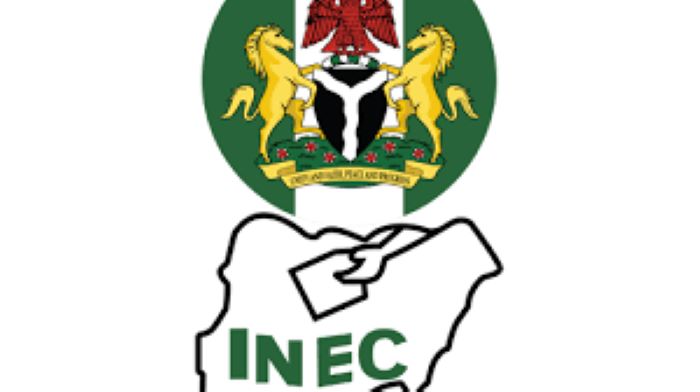On 3 April 2003, Nigeria’s Supreme Court decided a remarkable appeal. It began in September 1983 from the results declared in the ballot for the position of governor of Niger State, north-central Nigeria. The principal candidates were Auwal Ibrahim, the then incumbent and candidate of the ruling National Party of Nigeria (NPN). His main opponent was Alhassan Abubakar Badakoshi, the candidate of the Nigeria Peoples’ Party (NPP). At the end of the ballot, the Federal Electoral Commission (FEDECO), as the electoral empire was then known, announced Auwal Ibrahim as duly returned for another four years as Governor.
A dissatisfied Alhassan Badakoshi proceeded to the election petition tribunal. On 31 December 1983, the military sacked all elected civilians from office. Alhassan Badakoshi died nearly 20 years later on 16 March 2003. 19 days after his death, on 3 April, the Supreme Court finally decided that he was in fact the rightful winner of the election for the governor of Niger State in 1983.
This case illustrates in many ways the kind of fate that has befallen the courts under elective government in Nigeria. As this writer has pointed out elsewhere: “Every election cycle in Nigeria has three seasons. The campaign season belongs to the parties, the politicians and their godfathers. This is followed by the voting season, during which the security agencies and the Independent National Electoral Commission hold sway. Thereafter, matters shift to the courts for the dispute resolution season, which belongs to the lawyers (mostly Senior Advocates of Nigeria) and judges.”
The result has been to unduly judicialise politics and politicize the judiciary, with at least three notable consequences.
First, an exponential inflation in political cases has clogged up the courts retrenching them as legitimate arbiters on questions of justice and outsourcing that role, instead, to hucksters and vigilantes.
Second, with politicians desperate to be anointed winners by judges, judicial corruption has become a norm not an exception. The Independent Corrupt Practices Commission (ICPC) affirmed as much in a 2020 report.
Third, as a consequence of these two factors, the processes and quality of judicial preferments have become unduly co-opted and corrupted, eroding the judiciary of its constitutive claims to independence, integrity or trust. The consequence is that judicial tenure is no longer as secure as it used to be, evident in the enforced removal of the two most recent Chief Justices of Nigeria (CJN).
To understand how this eventuated, it is necessary to look back a little.
The role of the judiciary in determining winners and losers in elections has escalated beyond any reasonable prognostication since Nigeria’s return of civil rule in 1999. When it sacked the civilian government on the last day of 1983, the military regime of General Muhammadu Buhari launched a judicial commission of inquiry into the operations of the FEDECO, chaired by Bolarinwa Babalakin, a senior judge who later went on to serve on Nigeria’s Supreme Court. In its final report submitted in 1986, the Bolarinwa Babalakin Commission of Inquiry first called attention to the corruption of the judicial role in election dispute resolution, remarking that “the verdicts in a number of instances constituted a rape of democracy perpetrated through the law courts.”
This trend would deepen with the return to elective government in 1999 after 15 years of continuous military rule. 20 years ago, in 2003, leading Nigerian public law scholar, Obi Nwabueze, a Senior Advocate of Nigeria (SAN), accused the Supreme Court and the judiciary of playing a “discreditable part” in the erosion of judicial credibility through questionable decisions conferring judicial legitimacy to manifestly rigged elections.
The nadir was in 2007, when 1,282 offices out of a total of 1,496 or 85.7% of elective offices contested ended up in election petition tribunals, leading The Economist to describe Nigeria as a unique form of “democracy by court order”. Others have argued that elections in Nigeria are a systematic case of “rigging through the courts” and the most recent descriptions have accused the courts of undermining the faith of voters in democratic process.
By contrast, 2015 was the first time that Nigeria’s Presidential elections did not end up in court, reflecting the consensus that the elections of that year were relatively well organized with results that largely reflected the will of the people. It was also the first time that the proportion of elections ending up in courts was less than 50% (663 petitions or 44.32%). The 2019 elections produced 766 petitions (51.2%), roughly the same number as the 769 (51.4%) seen in 2011. Just last week, the President of the Court of Appeal disclosed that the 2023 elections have produced 1,209 petitions. At 80.82% of the offices contested, this confirms that the 2023 elections rival the 2007 elections in infamy.
The all-consuming process of election dispute resolution have cumulatively drained the judiciary in Nigeria of the intangible institutional assets of character, credibility, impartiality and independence. As the judicial role in elections has intensified, senior politicians and political parties began openly to vie for control in preferments to senior judicial office. In 2011, this crisis broke into the open with then Chief Justice and the President of the Court of Appeal trading mutual acrimony over grave allegations of influence peddling in the Sokoto State governorship election petition.
Two years earlier, in April 2009, then Governor of Kwara State, Bukola Saraki, procured the removal of the Chief Judge of the State, Raliat Elelu-Habeeb, by purporting to act on a summary resolution of the State House of Assembly, which he totally controlled. Her crime was that she was considered too independent. In proceedings that followed, the Supreme Court determined on 17 February 2012 that the removal was unconstitutional as it was not preceded by a disciplinary investigation by the National Judicial Council (NJC).
Even as this judgment appeared to reassure about the independence of judicial tenure, contemporaneous developments were essentially to negate its effect, leading to an intensification of the politics of appointment to the headship of the judicial branch at both state and federal levels. The reason for this is evident: the presiding judicial officer is the conduit for control of appointments, capital projects and budgets, as well as influence in the court system over which he or she presides. That person also controls the assignment of cases or constitution of panels in the most sensitive cases. Together, the presiding judicial officers determine who gets to sit or be excluded from election petitions. Above all, presiding judicial officers are constitutionally required to constitute panels of investigation where the impeachment of a Governor or the President (or their deputies) arise. The politicians can’t afford to have in such positions persons whom they don’t control.
For instance, when in 2004, Jacob Ugwu was due to retire as the Chief Judge of Enugu State, the NJC initially recommended Raphael Agbo, the most senior active judge in the state, to succeed him. The then state governor, Chimaraoke Nnamani, had other ideas and maneuvered to get Agbo elevated to the Court of Appeal, creating an opening for his preferred candidate – Innocent Umezulike, who, at that point, was only sixth in seniority among the judges on the High Court of Enugu State.
When former Rivers State Governor, Rotimi Amaechi, could not get his preferred candidate in 2012-2013 to become Chief Judge of the State, the courts in the state were locked up for the last two years of his tenure over the disagreement.
In Kano State, to avoid appointing as substantive Chief Judge, Patricia Mahmoud, a Christian from Benue who had been a judge with reputation for independence on the High Court of Kano State since 1991, an arrangement was reached to elevate her to the Court of Appeal. Justice Mahmoud had acted temporarily in 2015 in the office of Chief Judge of the State.
Evidently, the norm of seniority which favours the most senior active judge for appointment to the position of the Chief at the point that a vacancy is declared has failed to hold up well. This has become grist for the political mill in a season of perpetual politics. Initially, politicians appeared to believe that they needed to have excellent lawyers on their side in the multi-dimensional contests for power. Increasingly, however, as the judicialisation of Nigeria’s electoral process has deepened, it is now clear this is not good enough. To stand any chance, they now must also have their own judges in their bedrooms where possible, in their back-pockets when necessary, and at their beck and call at all times.
- A lawyer and a teacher, Odinkalu can be reached at chidi.odinkalu@tufts.edu



